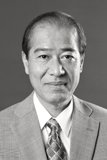The Edo Period as an Age of Public Opinion: Reassessing Early Modern Japan-Russia Relations as the Dawn of the Pacific Rim Era The dominant image of early modern (Edo period) Japan is of an oppressive feudal society. Examined in dispassionate perspective, however, the Tokugawa regime can be seen to have lasted as long as 260 years because the central government and the provincial rulers paid careful attention to public opinion and willingly accepted views expressed by the masses. Contrary to widespread belief, the Edo period was actually a time when public opinion counted for a great deal and when public policy was often drawn from below rather than handed down from above.  Written and pictorial sources like those shown here are the primary sources of historians. Even the same materials may yield varying interpretations, depending on the point of view of the reader. Principal areas of interest ● Politics and regional societies in early modern Japan ● Regional economies in early modern Japan ● Japan-Russia relations prior to the opening of Japan to foreign trade ● Castaway Japanese sailors of the early modern period ● Preservation of historical materials ● Folklore and folk traditions |














